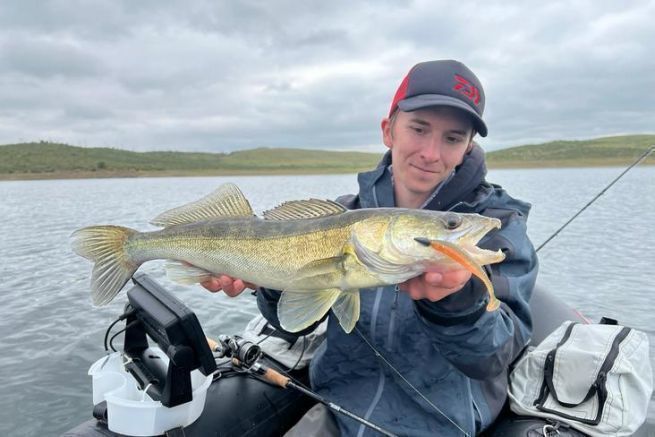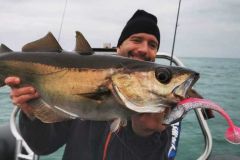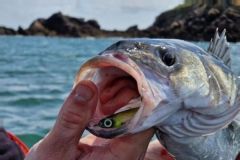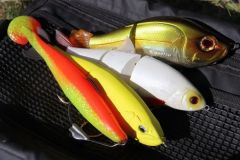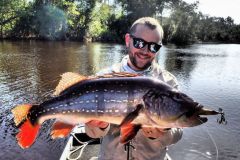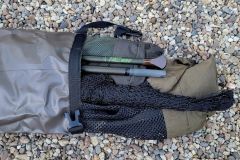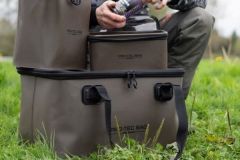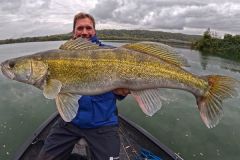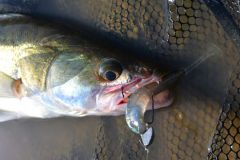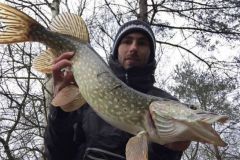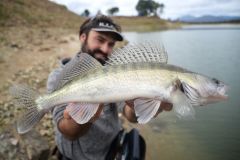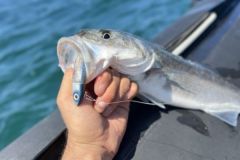Linear bases for pikeperch
It is important to know that the pikeperch is mostly posted near the bottom when it is active. The animation is very simple, it consists in letting the lure sink to the bottom, then to bring it back to you at a constant speed. To target the lure effectively, you must be able to analyze the height of water above the bottom that will give you the most bites.
Some days, the lure will be 5 cm above the bottom, while the next day it will be 50 cm. If you don't get many hits, try varying the weight of your sinkers and your retrieve speed to find the right speed/depth ratio.
Changing soft lures will also allow you to perfect the line, since each lure has a different resistance to water. The latter will be important for shads in stiff plastic, but weak for a very soft comma.
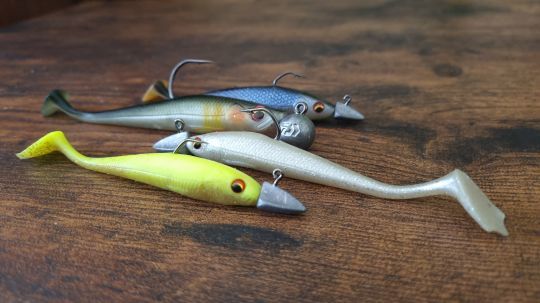
Find the right job
Depending on the season, pike perch will be found at different depths. To practice the linear is obviously more effective between 0 and 6 meters than between 6 and 12 meters where it is more difficult to make a lure evolve at a constant depth.
To do this, you will need to focus on seasons when the water is relatively warm, and the fish present near the edges. Preferably, a plateau between 3 and 7 meters deep, bordered by a break or a weed bed, will be a position that can be very productive.
If you want to practice this technique, I suggest you choose days when the weather will be overcast, or in tinted water. Pike-perch are nocturnal predators that can flee from the edges if too much light reaches their very sensitive eyes.
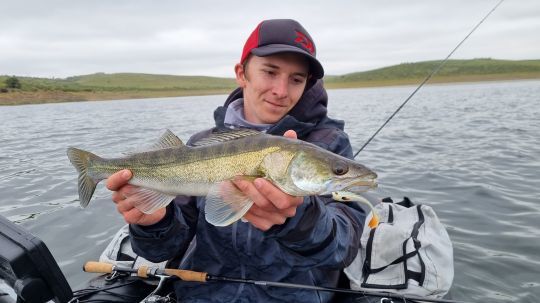
From the shore or from a boat
Line fishing for zander is easily done from a boat. If you are equipped with a sounder, you will be able to quickly find areas potentially suitable for this technique.
If you already fish vertically, your favorite spots will often be suitable for line fishing. This will give you an extra edge when other techniques don't work as well. It also helps you find your favorite depths more quickly because of the amount of ground each cast covers.
To practice from the shore, I recommend that you start out in a straight line on areas that you know, where the bottom is not too crowded, to avoid losing too many lures. If you still want to try on areas with a lot of snags, do not hesitate to drastically reduce the weight of the lure and therefore the speed of descent to avoid snagging too frequently.

 /
/ 